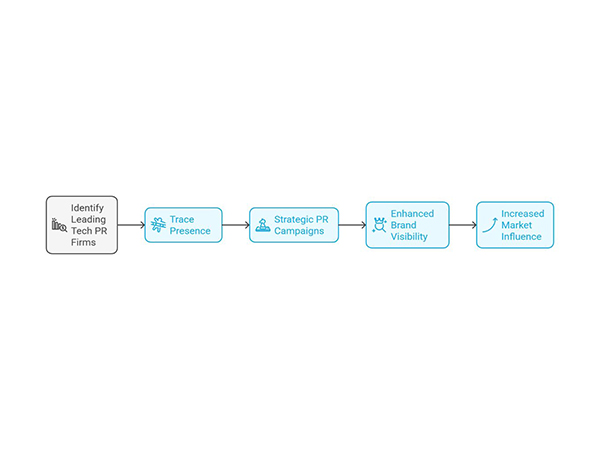
Exclusive Interview with Advocate Anik: Shedding Light on Cyber Crime, Victim Rights, and the Path from Filing a Complaint to Recovering Funds
Jun 19, 2024
PNN
New Delhi [India], June 19: In an interview with Advocate A M Iktear Uddin (Anik), a highly regarded lawyer based in Bangalore, partner of law firm known as Prime Legal, www.primelegal.in.We aim to delve into his extensive experience in the field of law, particularly in handling over 30,000 cybercrime cases globally. Recognized and rewarded by various state police departments for his contributions in nabbing cybercriminals, Advocate Anik is also an integral part of the close knit working group established under the Ministry of Home Affairs to combat cybercrime. We seek his insights on the challenges posed by cybercrime and effective strategies to address them.
What is cybercrime
A crime which takes place by using computers, networks, or digital devices. typically involve the intention to harm someone
What are Cyber Threats and Crimes?
Crimes include:-
A. Cyber Fraud Deceptive practices online to gain access to sensitive information or financial resources.
B. Identity Theft: Stealing personal information, such as Social account details or credit card details, to impersonate someone else or commit fraud.
C. Phishing: Sending fraudulent emails or messages that appear to be from trustable sources like banks to trick individuals into revealing information.
D. Malware, Ransomware and Cyber Espionage Attacks:- to steal data, or gain unauthorized access to systems to gain sensitive information.
E. Cyber Bullying: Harassing, threatening, or intimidating individuals through digital platforms, often using social media or what's apps.
F. Cyberstalking: Using the internet to harass or stalk individuals.
G. Intellectual Property Theft: Stealing creative works, inventions, or proprietary information.
H. Man-in-the-Middle
What Motivates Cybercriminals as per your experience?
Most of the time we find this happens for financial gain, personal grievances, or the desire for recognition and power.
How Do Cyber Crimes Take place?
As we discussed the methods above, they predominantly exploit trust, where attackers breach the victim's trust through these methods.
We encounter cases where individuals record private moments of victims during video calls and later blackmail them for money. Other methods include sharing OTPs, capturing screens, clicking malicious links, and various other approaches.
Important Acts and Sections:
* Information Technology Act, 2000: Primary legislation in India dealing with cybercrimes and electronic commerce.
* Indian Penal Code 1860 ( set to change toThe Bharatiya Nyaya (Second) Sanhita (BNS2)
We are not mentioning any sections to avoid complications with the new law
What Should a Victim of Cybercrime Do Immediately?
a. Immediately secure your accounts by changing passwords, documenting the incident, and preserving all evidence.
b. Report the incident to the authorities by filing a complaint on the National Cyber Crime Reporting Portal. Include all relevant details, such as bank account information, transaction IDs, and a comprehensive statement of the issue. If the fraud involves financial transactions, inform the bank's cybercrime team.
c. Write a detailed complaint with evidence Visit the police or a cyber crime station and file a complaint there as well..
d. If necessary, seek advice from a lawyer or advocate experienced in handling cybercrime cases.
e. It's important for the victim to maintain regular contact with the assigned investigating officer to stay informed about the progress of the investigation, recovery efforts, and any other relevant updates.
How Does Police/ Law Enforcement Track Cybercriminals?
In cases of financial and other frauds, police/law enforcement authorities send emails to banks' nodal officers to request the sharing of account holder details, debit freeze of the accounts ( for various layers), and other pertinent information. They are also actively engaged in digital forensics, analysing digital evidence from devices, tracking IP addresses to identify the source of cyber activities, and employing various other investigative methods.
Can you share the meaning of Layered Transactions.
In nearly all financial cybercrimes, I've observed that once criminals successfully transfer money, they swiftly move it through multiple accounts, a process known as peer-to-peer (P2P) transactions. The initial transaction is labelled as Layer 1, with subsequent transactions named accordingly in sequence.
How Can we Protect ourselves from Cyber Threats?
a. Create strong passwords: Combine letters, numbers, and symbols for enhanced security.
b. Enable two-factor authentication: Adds an extra layer of protection to your accounts.
c. Keep software updated: Regular updates patch vulnerabilities.
d. Avoid suspicious links and emails: Protect against phishing attacks. Never share OTPs without verification.
e. Use antivirus software: Safeguard against malware and other threats.
f. Establish security policies: Clear guidelines for data protection and privacy.
g. Conduct regular security audits: Identify and fix vulnerabilities proactively
h. Provide cybersecurity training: Educate employees on best practices.
i. Backup data regularly: Ensure continuity of business operations.
How can the victim of cyber crime fraud release funds from the court?
To proceed with your request after confirming with your case investigating officer that the funds have been blocked, follow these steps:
A. Consult a Lawyer: Share the details of your case with a lawyer.
B. Signature on Vakalatnama: Your lawyer will obtain your signature on a Vakalatnama.
C. File a Release Application: The lawyer will file a release application in the concerned court.
D. Court Process: The court will schedule a hearing to review the public prosecutor's report, known as CD (case details) reports.
E. Police Report: The police will provide the necessary information to the public prosecutor, who will then submit the report to the court.
F. Argument and Order: Your lawyer will present arguments in court to obtain a release order for the funds.
G. Conditions: The court may order the release of the funds with certain conditions.
What is your advice to the general public and government on cyber crime-related issues?
I urge the government to enhance public awareness and implement legislation requiring network service providers and bank account holders to share robust KYC (Know Your Customer) information.
Every citizen should prioritize their safety by exercising caution, monitoring financial activities, and promptly reporting any suspected cyber crime to the police or consulting a lawyer.
(ADVERTORIAL DISCLAIMER: The above press release has been provided by PNN. ANI will not be responsible in any way for the content of the same)









